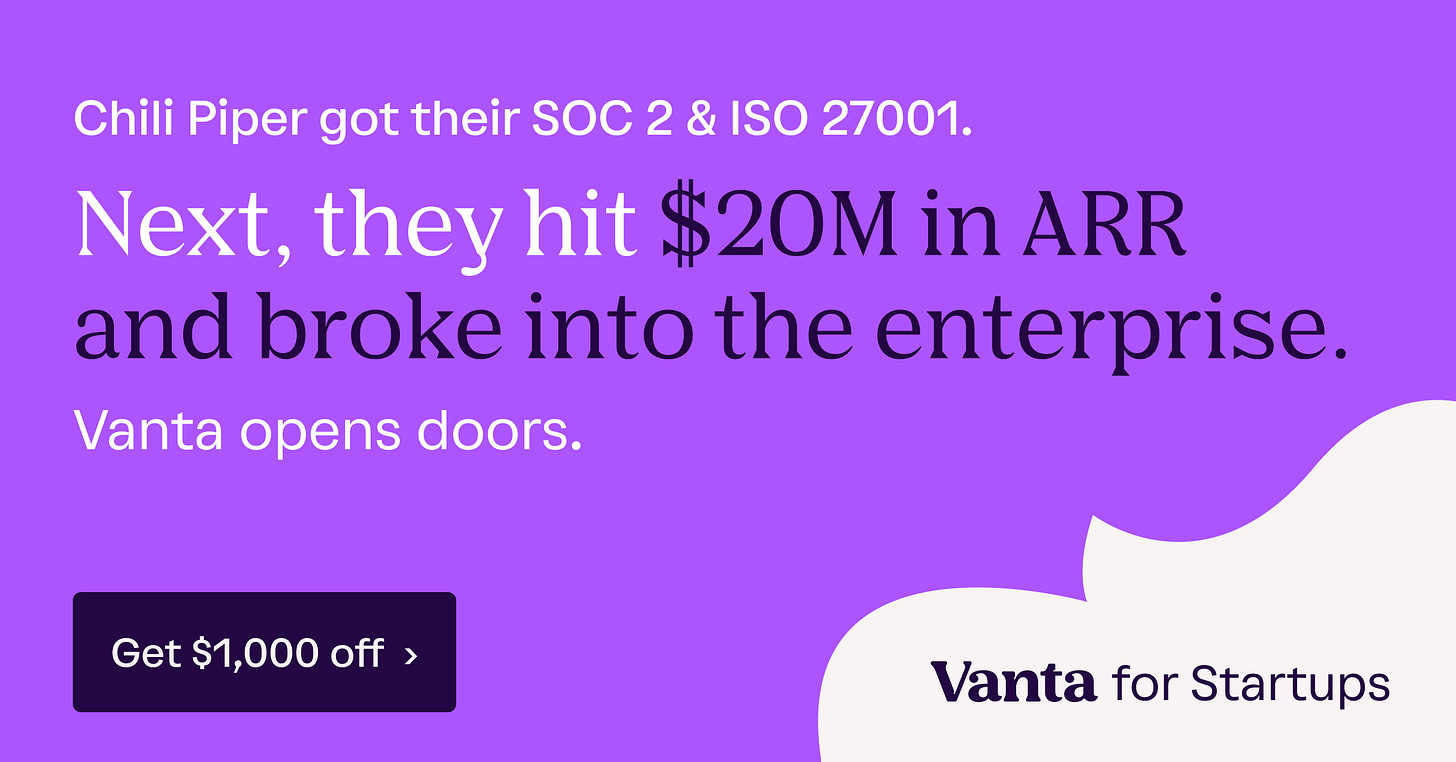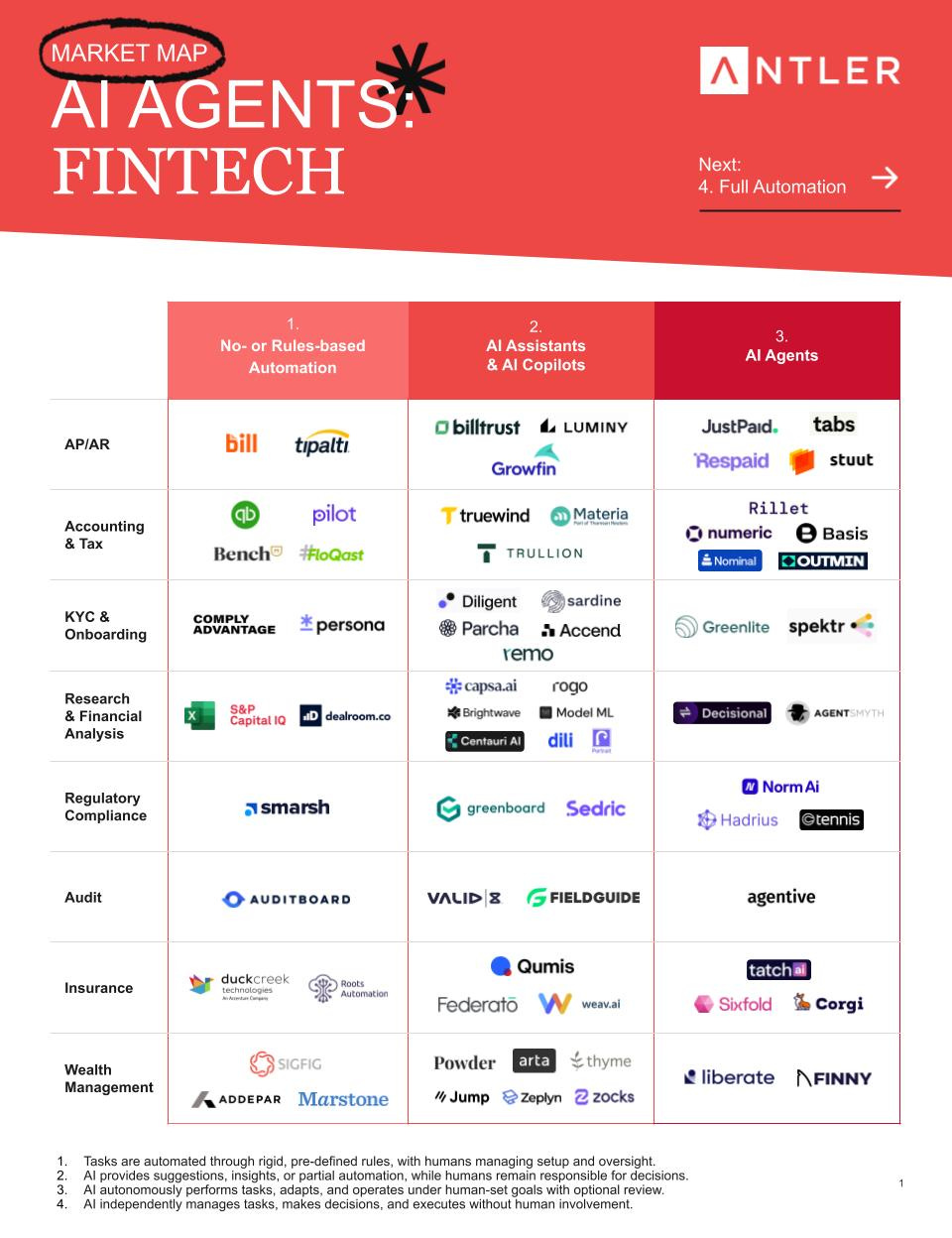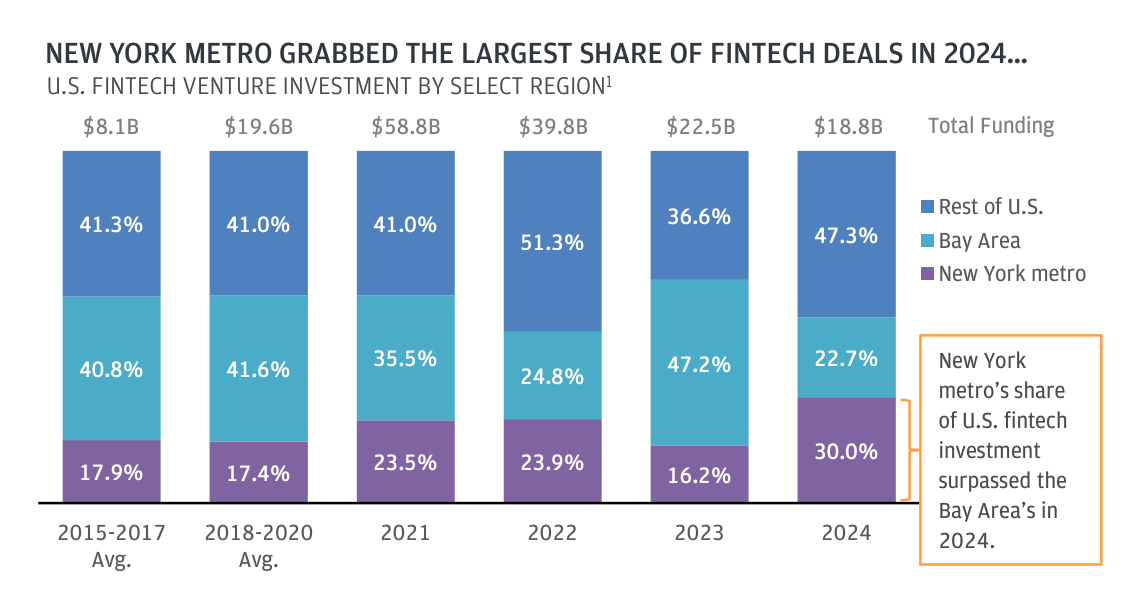Darks Clouds & Silver Linings as Fintech Rebound Hits Tariff Turmoil
Plus, what VCs had to say about Trump's tariffs
Greetings on this not-so-happy Friday for the markets and the global economy. We’re looking at early-stage fintech startups this week and the news isn’t all gloomy, though Klarna and Chime can’t be happy. Read on for bits about OpenAI & SoftBank, Elon Musk’s potential step-back, the TikTok tick-tock, and what the likes of Shaun Maguire and Ryan Petersen are saying about tariffs.
The Main Item
The Fintech Winter Thaws
It feels strange to write about how investors are excited about fintechs again at a moment when the publicly-traded flagships of the sector, including PayPal, Affirm, and Robinhood, are seeing their shares plummet in response to President Trump’s Wednesday tariff announcement.
Tech stocks have been crushed across the board, with the NASDAQ falling 7% over the past five days, and fintechs did worse than most. Affirm was down about 22% for the week.
Investors worry that rising tariffs and the ensuing economic uncertainty will trigger recessionary behavior by consumers, who are likely to cut their spending and default more often in a down economy.
“These fintech stocks have a lot of direct consumer exposure — public markets think that consumers will spend less given the tariffs,” said Jai Das, general partner at Sapphire Ventures.
The public market turmoil casts a dark shadow over the planned IPOs of buy-now-pay-later champion Klarna and mobile banking juggernaut Chime.
Yet there are several silver linings for earlier-stage fintechs.
For one, the sector as a whole has been on an upswing over the past six months after a tough couple of years, with interest rates starting to come down. Investors were cautiously cheery for the first time in months before the Thursday meltdown, and the momentum could return if markets stabilize.
“It feels like the clouds are lifting,” said Matt Streisfeld, general partner at Oak HC/FT.
In addition, a lot of the excitement among investors relates to companies like Mercury and Ramp integrating AI for specific purposes, such as automating invoices and expense reports. These business-oriented, administrative functions, which can also include insurance, compliance, and accounts receivable, might be less vulnerable to an economic slowdown than consumer payment and credit activities.
BCV partner Mark Fiorentino said that for early-stage startups, it’s all about the niches.
“After the commodification around many of the large language models, there’s been much more attention placed on the application layer — where most of these fintech use cases hit in the first place,” he said.
Brought to you by Vanta
Open doors to next-level growth with Vanta
As a startup founder, finding product-market fit is your top priority.
But landing bigger customers requires SOC 2 or ISO 27001 compliance — a time-consuming process that pulls you away from building and shipping.
That’s where Vanta comes in.
By automating up to 90% of the work needed for SOC 2, ISO 27001, HIPAA, and more, Vanta gets you compliant fast — opening doors to next-level growth opportunities.
Over 10,000 companies like Atlassian, Factory, and Chili Piper streamline compliance with Vanta’s automation and trusted network of security experts. Whether you’re closing your first deal or gearing up for growth, Vanta makes compliance easy.
Learn more and claim a special offer of $1,000 off Vanta.
Promising Fintech Categories & Companies
Themes that came up repeatedly in my conversations with investors this week were accounting and invoicing products, and startups selling to corporate chief financial officers.
One breakout early-stage startup in the accounting space is Basis, whose AI agents automate work for accountants like transaction entry and data verification. The startup closed a $34 million Series A round in December led by Khosla Ventures. Sources tell me it’s gotten multiple offers to pre-empt its next round.
Another is Thatch, which manages insurance budgeting for large corporate clients. It just raised a fresh $40 million Series B from existing investors Index, a16z, and General Catalyst.
Seed-stage startup Abacus, which is also aimed at accounts receivable paperwork, has locked up $4 million in funding led by Menlo Ventures, according to a source familiar with the deal.
Wealth management automation is also a growing category. Range, which raised a $28 million Series B in November, has tripled its revenues since its last fundraise and has been getting offers to preempt its next round, according to a source with direct knowledge of the company's business.
On the institutional side, big banks have been more cautious about generative AI deployment, investors tell me. Some, including Goldman Sachs, have developed their own in-house assistants using proprietary data, while others have been testing out tools from various companies before deciding to implement them widely.
The startup accelerator and early-stage VC firm Antler released a map of fintech AI applications back in March, which breaks down the main sectors well:
In addition to Antler’s map, here’s a list of categories and startups that investors told Newcomer they were excited about:
Accounts Payable / Accounts Receivable Tools
Atlas
Tabs
Accounting
Black Ore
Basis
Quanta
Abacus
Wealth Management
Range
Research and Analysis
Rogo
Hebbia
Finster AI
Mako
Benefits
Thatch
Creditors and Lending
Salient
January
Compliance
Warp
Norm Ai
GreenLite
Transaction Rails
Grain
Fraud and Credit Underwriting
Oscilar
Taktile
Zest AI
Newcomer Podcast
OpenAI: A $300 Billion Non-Profit?
OpenAI has done it again! SoftBank makes it official, leading the largest venture round ever (with some strings attached).
We debate the bull and bear case for OpenAI at a $300 billion valuation. Plus, who thought there’d ever be so much espionage in HR tech? Eric has the story on the Deel spy’s confession.
In the second half of the episode, Eric spoke with the CEO of ET 30 mid-stage company winner, Clay. Clay CEO Kareem Amin explained how his go-to-market company is using generative AI to create a new type of revenue operations worker.
One Big Chart
New York Surpasses SF as a Fintech Hub
When it comes to fintech startups, New York is now the market leader.
Fresh data from J.P. Morgan’s Startup Insights report tagged the big apple as the US city with the most fintech startup formation, at 30.7% of all deals in 2024.
Last year was the first that New York surpassed San Francisco, which had consistently held the lead until then. SF is still solid, though, with 22.7% of all fintech rounds.
Newcomer Event Calendar
Uber & Figma CEOs Will Speak at the Cerebral Valley AI Summit London
We announced our first batch of speakers for the Cerebral Valley AI Summit London this week. Uber CEO Dara Khosrowshahi, Figma CEO Dylan Field, Synthesia CEO Victor Riparbelli, Granola CEO Christopher Pedregal, Crusoe CEO Chase Lochmiller, Fireworks CEO Lin Qiao, and more will be on stage at our mid-year Cerebral Valley AI Summit.
Breaking the Bank | May 20 in San Francisco on financial technology.
Cerebral Valley London | June 25 in London on artificial intelligence | Hosted with Volley.
Deus Ex Medicina | Sept. 9 in San Francisco on health tech and longevity | Hosted with Nayeema Raza.
Cerebral Valley AI Summit | Nov. 12 in San Francisco on artificial intelligence | Hosted with Volley.
Five Notable Deals
OpenAI, Plaid, ReliaQuest, Runway, Flock Safety
It was a big week for the upper echelon of AI startups: OpenAI closed the largest venture capital round in history this week, while several AI unicorns and security startups raked in millions.
OpenAI raised $40 billion in new funding at a $300 billion valuation, led by SoftBank. The deal is tranched so that OpenAI gets $10 billion up front — $7.5 billion comes from SoftBank, and $2.5 billion comes from additional investors including Microsoft, Altimeter Capital, Thrive Capital, and Coatue, per Reuters. The remaining $30 billion will come at the end of the year if OpenAI converts into a for-profit company.
Fintech giant Plaid sold $575 million worth of shares in a secondary sale that valued the startup at $6.1 billion. It’s a drop from the $13.4 billion valuation Plaid held from its previous funding round in 2021.
Security startup ReliaQuest raised $500 million in growth funding co-led by EQT, KKR, and FTV Capital. Ten Eleven Ventures and Finback Investment Partners also participated.
Video generation platform Runway raised a $308 million Series D round led by General Atlantic. Fidelity Management & Research Company, Baillie Gifford, NVIDIA, and SoftBank also participated, alongside other new and existing investors.
Surveillance tech startup Flock Safety raised $275 million in new funding led by a16z. Other investors included Greenoaks Capital, Bedrock Capital, Meritech Capital, Matrix Partners, Sands Capital, Founders Fund, Kleiner Perkins, Tiger Global, and Y Combinator.
What They’re Saying
Trumpist Techies Defend Tariffs While Critics Ridicule Policy
Thursday saw a Wall Street bloodbath in response to President Trump’s sweeping tariff announcement. Here’s what Silicon Valley had to say about it:








